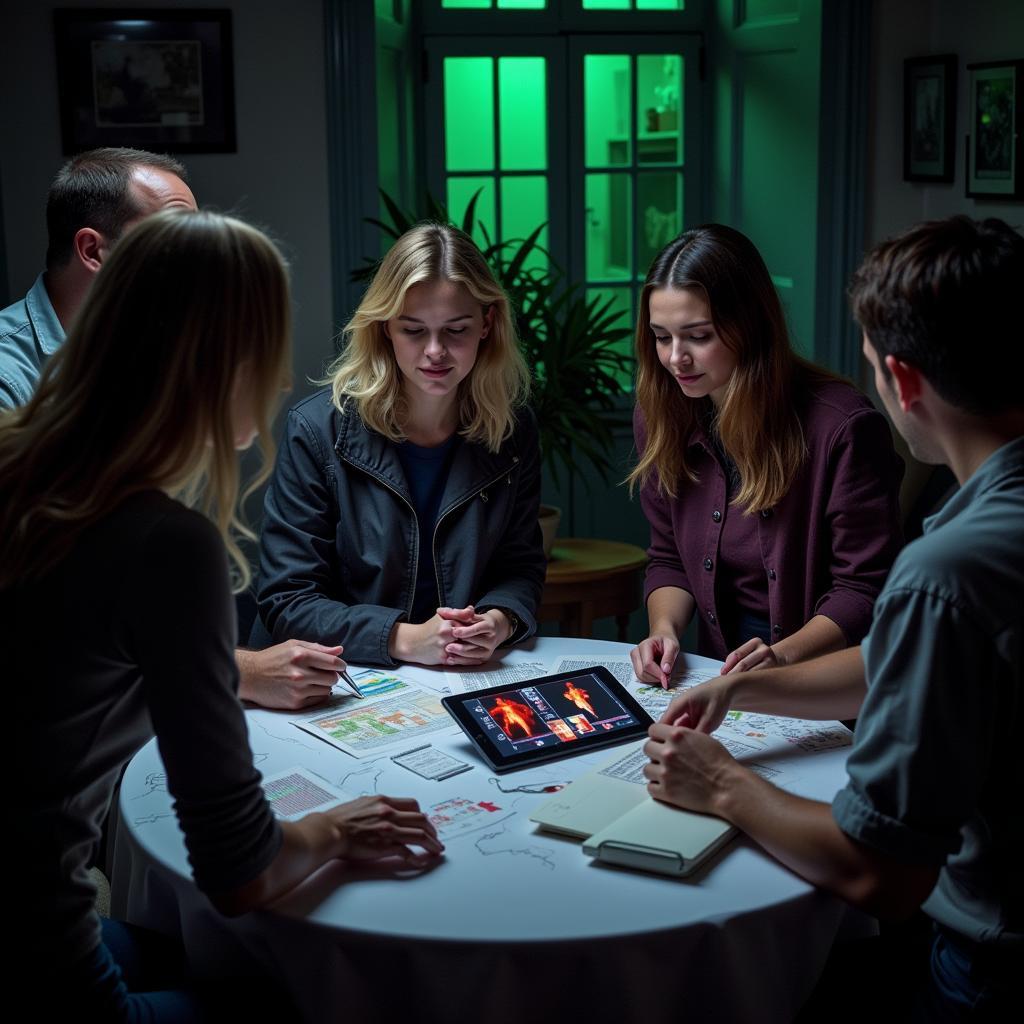Critical Qualitative Research is a powerful tool that goes beyond the surface, seeking to understand the complex social phenomena that shape our world. When applied to the realm of the paranormal, it offers a unique lens through which we can examine extraordinary experiences, beliefs, and the very nature of reality itself.
Delving into the Unknown: What is Critical Qualitative Research?
Unlike quantitative research methods that rely on numerical data and statistical analysis, critical qualitative research embraces the subjective and interpretive nature of human experience. It delves into the “why” and “how” behind the numbers, exploring the intricate interplay of beliefs, values, and power dynamics that influence our understanding of the world.
This approach is particularly relevant in paranormal research, where personal experiences, cultural beliefs, and psychological factors play a significant role in shaping how we perceive and interpret anomalous events.
Why Use Critical Qualitative Research in Paranormal Studies?
Imagine this: a witness describes a haunting figure, a shadowy silhouette glimpsed in the darkened hallway of an ancient manor. A quantitative approach might simply document the sighting, recording details like time, location, and witness demographics.
However, critical qualitative research encourages us to probe deeper. What cultural beliefs about ghosts influenced the witness’s perception? Were they familiar with ghost stories associated with the location? Did they have any prior experiences that might have shaped their interpretation? These are just a few of the questions that this method allows us to explore.
Essential Elements of Critical Qualitative Research
There are several key characteristics that distinguish critical qualitative research from other methodologies:
- Focus on Social Context: It recognizes that our understanding of the world is shaped by the social structures, power dynamics, and cultural norms that surround us.
- Emphasis on Meaning-Making: It seeks to understand how individuals and groups make sense of their experiences, particularly in relation to the paranormal.
- Reflexivity: Researchers acknowledge their own biases and assumptions, recognizing that their perspectives influence the research process.
- Commitment to Social Justice: Critical qualitative research often aims to challenge inequalities and promote social change by giving voice to marginalized perspectives.
 Research Methods for Paranormal Activity
Research Methods for Paranormal Activity
Applying Critical Qualitative Research in Paranormal Investigations
Let’s consider a few specific ways that this method can be applied to paranormal research:
1. Analyzing Ghost Stories: By examining the narratives and cultural contexts surrounding ghost stories, researchers can gain insights into societal beliefs about death, the afterlife, and the nature of reality.
2. Understanding Paranormal Experiences: Critical qualitative research can help researchers explore the personal and social factors that influence how people interpret and make sense of anomalous experiences. This includes examining the role of belief systems, cultural backgrounds, and psychological states in shaping these encounters.
3. Investigating Paranormal Claims: By applying a critical lens to claims of paranormal activity, researchers can identify potential biases, alternative explanations, and the influence of social factors on the interpretation of evidence.
For example, consider the concept of a “research gap,” a term often used in academic research to identify areas where further study is needed. In paranormal research, critical qualitative analysis can help to pinpoint these gaps in our understanding, leading to more focused and insightful investigations.
Conclusion: Embracing a Critical Perspective
In the ever-evolving field of paranormal research, critical qualitative research offers a valuable tool for uncovering the hidden meanings and social dynamics that shape our understanding of the unknown. By embracing a critical perspective, we can move beyond simplistic explanations and delve into the rich tapestry of human experience, beliefs, and the search for meaning in a world where the boundaries of reality remain tantalizingly blurred.
Frequently Asked Questions about Critical Qualitative Research
1. What are some common methods used in critical qualitative research?
Common methods include in-depth interviews, focus groups, ethnography, and textual analysis. These methods allow researchers to gather rich, nuanced data that can be analyzed for themes, patterns, and insights into the social world.
2. How can I ensure the rigor of my critical qualitative research?
Rigor in qualitative research involves ensuring trustworthiness, credibility, and transferability of findings. This can be achieved through methods such as triangulation (using multiple data sources), member checking (verifying findings with participants), and thick description (providing rich contextual details).
3. Can critical qualitative research be combined with other research methods?
Yes, critical qualitative research can be effectively combined with other research methods, such as quantitative research or experimental design, to provide a more comprehensive understanding of a phenomenon.
4. What are some resources for learning more about critical qualitative research?
Numerous books, articles, and online resources are available to guide researchers in conducting critical qualitative research. Consulting with experienced researchers in the field is also highly recommended.
5. How can I apply critical qualitative research to my own paranormal investigations?
Consider the social, cultural, and personal factors that might be influencing your interpretations of paranormal phenomena. Engage in reflexivity, examining your own biases and assumptions. Seek out diverse perspectives and be open to exploring alternative explanations.
Need help with your Paranormal Research or want to learn more about our services? Contact us at:
Phone: 0904826292
Email: research@gmail.com
Address: No. 31, Alley 142/7, P. Phú Viên, Bồ Đề, Long Biên, Hà Nội, Việt Nam.
Our team is available 24/7 to assist you.